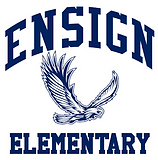


Ensign Elementary PTA
Salt Lake City

STEAM Fair
Ensign STEAM Fair 2024 will be held
Friday, January 12th, 2024
from 9:00-11:00am
in the Ensign Gym
STEAM Fair Chair: Dan Robrecht (email)
Academic Enrichment Chair: Harry Fishleigh (email)
1. As mentioned in Mr. Jacobson's weekly email, Dan Robrecht, our Ensign PTA STEAM Fair chair (and dad of an Ensign 6th grader) will be available in the library Tuesday (and also the Tuesday before the science fair in January) after school to work with whomever is interested on their STEAM ideas on projects.
2. We'll need parent volunteers for judging. Here is the sign up genius for it: Ensign 2024 Judging sign up
3. Here are the overall rules for the science fair including link to register:Ensign STEAM Fair Rules 2024
Ensign Elementary STEAM Fair message from Dan Robrecht, Ensign STEAM Fair chair:
I'd like to introduce everyone to the Ensign Elementary Science, Technology, Engineering, Arts, and Math (STEAM) fair.
This is a fair we hold every January to give every student in the school the opportunity to dive a little deeper into a natural or scientific phenomenon.
Each student (or a group of up to 3 students) can participate in one of two ways:
1. Preparing an art project that reflects some scientific or natural principle.
2. Doing a science experiment
If you choose to do an art project, the project must be linked to a scientific or natural phenomenon and you should be prepared to explain your project and its relationship to scientific ideas. (Here is a slide deck that gives some ideas about how to present an art project)
Doing science (REAL science!) may sound daunting at first, but it can be as simple as you want it to be. Here are a few basic steps:
-
Pick a topic you're interested in! (This makes the whole thing much more fun) The topic doesn't have to be "scientific" at all, just think about what you like and questions you have.
-
Think of a question. Probably there are already questions you have about your favorite topics that could be tested. It's usually easiest if there is one thing you can change, and then watch for some result that you can measure. (If you like playing 4 square, maybe you're curious about how high the ball bounces depending on how pumped up it is).
-
Formulate a hypothesis: A hypothesis is your guess as to what the answer to your question is. (I think the ball will bounce higher the more air I put in)
-
Think of a procedure: A procedure is an experiment that can be conducted to figure out whether your hypothesis is right. (I'll pump 3 identical balls to high, medium, or low pressure, drop each from the same height 10 times, and measure how high each one bounces).
-
Gather materials: Get whatever you need to carry out your procedure.
-
Record results: By experimenting, you can see if your hypothesis was correct. The more times you repeat the experiment, the better your data will be, but plan to do it at least 3 times.
-
Arrive at a conclusion: Take a good look at the result you got, and determine whether your hypothesis was right or wrong. (remember that getting it wrong is not bad, it means you thought of a genuine question you were curious about, and you learned something new! I'm pretty sure I already know the answer to my question in #2, which makes it less interesting.) Also, think of ways you could further explore the question.
-
As you’re doing your experiment, take notes so that afterward you can more easily share what you did and what you learned. Keep these notes together in a "lab journal"
-
Make a tri-fold board: These are available free from Dani in the office. More information will be available about how to make a science fair board, including a sample power point that can be completed, printed, and glued to the board.
Finally, Present your project at the science fair at school on January 12th! There will be space to set up tri-fold boards and art projects. You'll get the opportunity to talk to 3 adults (or possibly an older student) about your project and explain your work. Prizes will be given out for the best work by grade level, and for 5th and 6th graders, there will be an opportunity to take your project on to the district and regional science fairs (we get to send 3 projects to district). But everyone who does a project will learn something, so there are no "losers" and no bad grades to worry about. After school there will be time for parents and students to look over all of the projects (and maybe get some interesting ideas for next year!)
I'd like to offer any help I can so that everyone who wants to can participate, learn some science and have a good time. I'll try to set up some time after school when I could answer questions and help you on your projects. Please have your parents call or email me with any questions or anything I can help with!
Dan
801-389-9531
PTA thanks Dan for his hard work and encourages all families to participate!!!
The PDF files linked at the icons below are flyers with guidelines from the District for Grades 5th and above.









